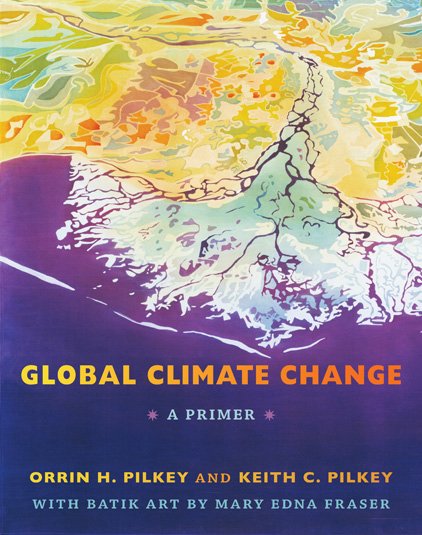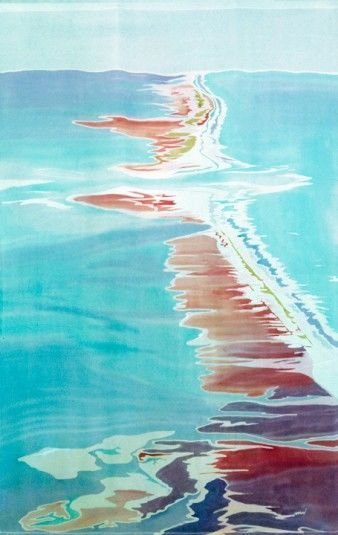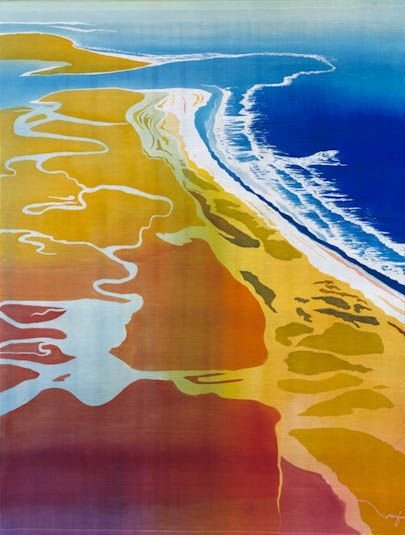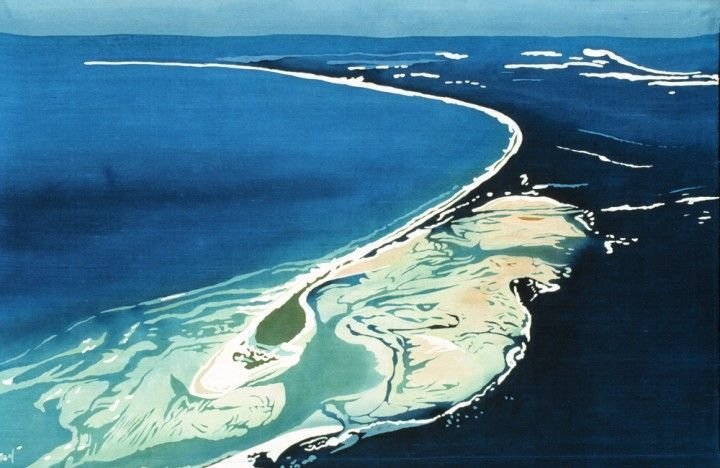Duke University Professor Emeritus Orrin H. Pilkey is one of the rare academics who engages in public advocacy about science-related issues. His collaborator, Mary Edna Fraser, is an artist who highlights environmental concerns in large silk batiks and oils. They are the co-authors of A Celebration of the World’s Barrier Islands and Global Climate Change: A Primer. Their traveling exhibits, “Our Expanding Oceans” and “Shifting East Coast Barrier Islands” creatively merge science and art.
MARY EDNA FRASER
I think any time we are closer to the earth, we can feel the struggles of other human beings as well. I encourage young women to find whatever it is they are passionate about and invest their entire soul in it and go for it! Because you’ll be happy if you’re passionate about your work.
ORRIN H. PILKEY
People who are passionate about their work are very lucky.
FRASER
My mind definitely expanded with the horizons that you shot me into.
PILKEY
It’s been a real discovery for me the idea of working with an artist.
*
Southern Africa, south of the Sahara, they’re expecting within this century 200 million climate refugees. Where are they going to go? Who wants those refugees. We have the same thing happening in Central America. Where are they going to go? All over the world, we’re seeing because of climate change we’re seeing vast changes affecting all aspects of society. It’s very worrisome and that’s something that we’ve not been able to face politically. We need to do that.”
Paintings by environmental artist Mary Edna Fraser
This interview was conducted by Mia Funk & Panisara Jaijongkit with the participation of collaborating universities and students. Associate Interviews Producer on this podcast was Panisara Jaijongkit. Digital Media Coordinator is Phoebe Brous.
Mia Funk is an artist, interviewer and founder of The Creative Process & One Planet Podcast (Conversations about Climate Change & Environmental Solutions).




















































































